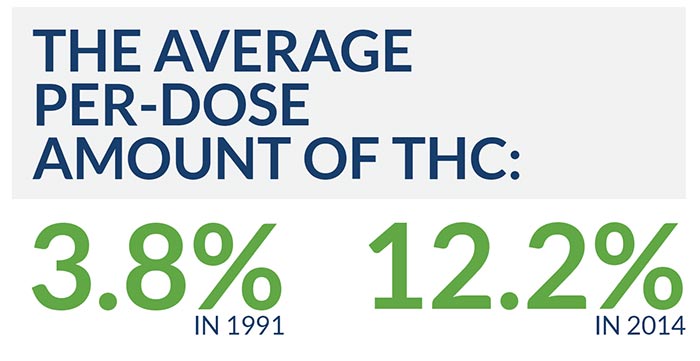

In addition to full relapses, recent work has demonstrated that lapses (defined as a slip or violation of the abstinence goal) are also common. Previous research has shown that 63 % of adults engaged in cannabis use treatment (i.e., cognitive behavioral intervention and motivation enhancement) relapse (defined as a return to the previous level of use or abandonment of the abstinence goal) to regular use within 4 months, with the rates of relapse increasing to over 70 % by 16 months. Despite the presence of such effective interventions, and patients’ desire to quit, cannabis use cessation attempts are often met with high rates of lapse and relapse, indicating significant room for improvement in the treatment of problematic cannabis use. Contingency management, motivational enhancement, and cognitive behavioral interventions are currently the most efficacious evidence-based interventions offered for treatment of CUDs. On the basis of this prevalence pattern, it has been estimated that the need for cannabis use disorder (CUD) treatment will more than double by 2020. Therefore, it is likely important to consider interventions aimed at providing alternative means to cope with and/or treat sleep disturbances (e.g., behavioral or pharmacological approaches) as adjuncts to interventions for cannabis use disorders to improve treatment outcomes.Īpproximately 97 million Americans over the age of 12 years (31 % of the overall population) have tried cannabis, with 4.3 million Americans (1.3 % of the population) meeting the criteria for problematic cannabis use (defined as hazardous use, abuse, or dependence) in 2009.

Here, sleep disturbances have been reported as a primary symptom of withdrawal, with studies revealing that this increase in sleep disruption during discontinuation of cannabis use may be a significant risk factor for relapse. Evidence also points to sleep as an important consideration in terms of understanding cannabis withdrawal and relapse. This form of use likely contributes to the development of problematic cannabis use patterns, including cannabis use disorders. Although evidence suggests that cannabis is likely beneficial for sleep initiation, over time individuals may develop tolerance to these benefits, leading to greater use in order to maintain the same sleep-inducing effects. Cannabis may be used, among certain individuals, for its actual and/or perceived sleep-promoting properties.


 0 kommentar(er)
0 kommentar(er)
